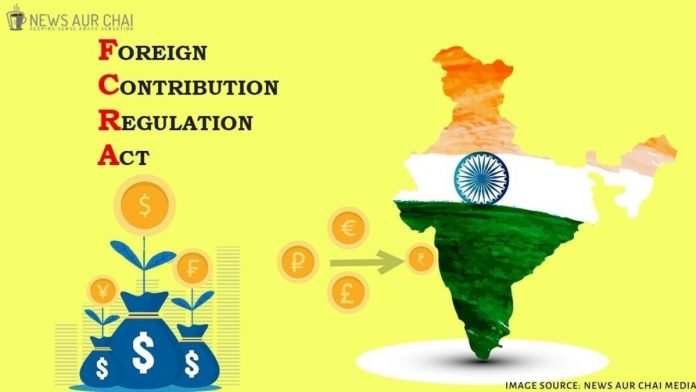This article is written by Ananya Shah, pursuing a Diploma in Business Laws for In House Counsels from LawSikho.
Table of Contents
Introduction
In order to understand what is a donation and what are the prerequisites to receive contributions under the Act, we must understand what is FCRA. The Foreign Contribution Regulation Act received the President’s assent on September 26th, 2010. This Act was basically brought about because there was an expressed concern that was present due to the inflating donations that were coming in from overseas and foreign places. The point of such an act was to make sure that the assets that were being sent and brought in should not influence the decisions that may cause economic imbalance. Foreign contributions and non-profit companies that want to get some type of funding in India from foreign sources are needed to comply with the laws, rules, and regulations made by the government. In a nutshell, we get to know that all the individuals, non-profit Companies who intend and wish to receive funding in India essentially must comply with the rules and regulations that are made by the government for a smooth transition.
Foreign contribution: an insight
Such a contribution that is as the name suggests any payment or donation that is made by any foreign source of the following:
- This can be firstly any article that is given to any person for personal and individual use but keeping in mind this cannot be a higher market value than Indian currency, more than Rs. 25,000/-
- Secondly, this can be the currency either foreign or it can be Indian currency.
- Thirdly this may be any security that is also foreign security given and defined in the FEMA Act of 1999.
Foreign resources
There are different resources that are present that include foreign resources which are as follows:
- Through a foreign company.
- Through the citizen of a foreign company
- Any company that is even though registered in India but the capital is held by either: a) Citizens of a foreign country. b)Foreign company c)Corporations incorporated in a foreign country Or d) a trust, society, or it can be any other association that is formed or registered in a foreign country.
The Foreign Contribution Regulation Act: a brief overview
This Act essentially streamlines all of the accounts for the year and gives every minute detail of the transaction to every individual by any individual. Let us take the example of an NGO, this being a non-legislative type of organization that has a clear social or financial stand, such an organization stands for any type of social cause that is relevant to the society this can be for example:
- Country advancement
- Ecological preservation
- Elderly help
- Medical care
To name a few these are known as non-governmental organizations that work for the betterment of society for the relief of the people and environment. The connection of FCRA with NGOs is fundamentally historical in nature. We see that since the time emergency was implemented under the then Prime Minister Indira Gandhi’s rule it was seen that many different types of political activists etc. of the grassroots levels were then detained and then it was felt that the passing of the FCRA would then destabilize the government because there would then be foreign interruption that would cause instability.
Foreign transfer and its acceptance
The person who can accept foreign contribution is in the form of either shares, bonds, debentures, stocks or it can be in any other instrument denominated or stated in foreign currency and securities shown in foreign currency and the dividends may be payable in Indian currency. This acceptance can be only if the person who has a cultural, economic, religious or some type of social program who is allowed to accept foreign contribution after the registration and also the requirement of taking permission from central government is mandatory and also required for the benefit of the organizations who are taking in the money from any foreign investment.
Who can accept the foreign transfers?
The answer to this essentially lies within the definition that is given under Section 2(1) (m) with the exclusion of what is basically mentioned in Section 3 of this Act. Anything that has a definite, economic, religious, economic, and/or social programming can receive any foreign contribution after it obtains the permission of the Central Government they play an extremely important role the person must get registered with the Central Government. On the other hand, a person who cannot accept foreign transfer is a person or organization that comes below either of the categories:
- A candidate standing for election
- Any correspondent or columnists such as a cartoonist, any editor, the owner or printer, or publisher of a registered newspaper.
- Any public servant such as a Judge, government servant, or employee of any Corporation.
- It cannot be a member of any legislature or even any political party or even an office-bearer.
The organization of any political party is given under Section 5 Subsection 1 that is given by the Central Government. - Any company that is engaged in the production of the broadcast or any sort of audio or visual news or current affairs program will not be allowed to accept any type of foreign contribution.
Are there any eligibility criteria for the grant of the registration of the FCRA?
Yes, there is a grant that needs to be registered under the FCRA 2010, the association must do the following:
- They should be registered under the Societies Registration Act, 1860 or the Indian Trusts Act, 1882, or Section 25 of the Companies Act 1956.
- Also, the society must submit and show the project that is reasonable in nature to prove what the money is required for and where the foreign contribution will be utilized.
The Act of Foreign Contribution (Amendment) Regulation Bill, 2020
This essentially states about the amendment that was introduced in the Lower House on September 20th, 2020 there were a few amendments that were prevalent which changed the 2010 Act, they are as follows:
- Firstly there was a change brought about in the Act to prohibit the acceptance of foreign contribution by certain persons: there were people who were either the publisher or newspaper editors or they could be government servants, election candidates, etc. The specifics of who a public servant is under the Indian Penal Code.
- Secondly, under this Act, there can be no foreign contribution that can be transferred to any other person unless and until the person is either registered and obtained prior approval of foreign contribution under the same Act.
- This Act also says that if there is an Aadhar registration then the person can accept a foreign contribution, but the person must not have been registered but have actually obtained prior authorization so that he/she may accept foreign contribution. The new bill also states that if a person is seeking any type of authorization or permission the registration and renewal of registration should include the Aadhar number for all the office bearers and also the copy of a passport or identification of the overseas Citizen of India card must be issued for identification in case there is a person who is not an Indian and a local.
- The Bill also issued amendments to Section 11 of the Act wherein it was written to add a proviso that will then give power to the government to disallow any person who got permission under FCRA to utilize and receive foreign contribution but without the approval of the government then it would be believed that the person would violate any provision of the Act or Foreign Contribution (Regulation) Act, 1976. If there are any type of unused funds the government will have the power to stop the use of unutilized funds. Basically, this was done because if there is any person who has gone against the amendments and the provisions that are laid in the Act, this amendment is to be preventative in nature.
- After the registration of the person under Section 17 of the Bill where it is given that a person or a receipt of the contribution that is foreign must acknowledge the amount by a bank that is specified by the Central Government for example it can be the State Bank of India. Such a bank is specifically only meant to receive contributions that are foreign in nature. This basically allows the government to ease their monitoring and tracking of the fund through centralizing all the foreign contributions into one single bank.
- There is a strict requirement to register the certificate and the Bill also provides the guidelines for the same the government may conduct an inquiry as well wherein the person has been applying is not one of the following:
- Is not fictitious or Benami.
- Hasn’t been found guilty of any type of diversion or misutilization of any type of funds under any circumstances.
- The person shouldn’t have been prosecuted or convicted for creating any communal tensions or to be seen in any activities that are wrongful in nature, especially that are aimed at religious conversion.
- Fourthly there cannot be any malpractice of any kind such as embezzlement for the funds.
Conclusion
All in all, we see that sometimes taking help from foreign contributions is necessary and required for the gathering of funds and also for the benefit of the projects that are needed for the betterment of the society at large. Although there are a few restrictions and stoppages we see that the Act has been created for the benefit and betterment of the people who are receiving foreign contributions and also funds, this Act has created a streamlined system for the growth and understanding of the foreign contribution this way many may reap the benefits of getting help from the outside, as contributions after submitting the proper papers and the registration is done in the correct manner as well.
Students of Lawsikho courses regularly produce writing assignments and work on practical exercises as a part of their coursework and develop themselves in real-life practical skills.
LawSikho has created a telegram group for exchanging legal knowledge, referrals, and various opportunities. You can click on this link and join:
 Serato DJ Crack 2025Serato DJ PRO Crack
Serato DJ Crack 2025Serato DJ PRO Crack










 Allow notifications
Allow notifications


